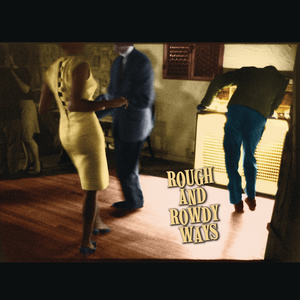Among the many things that define Bob Dylan is the frequency with which his public persona changes. At various times, he has assumed the roles of philosophizing folk hero, bluesy beat poet, and sentimental country crooner. On Rough and Rowdy Ways, released this past June, he has quite comfortably settled into one of his most compelling niches to date: that of the wizened old man giving valuable advice on life to all who are willing to hear. Dylan avoids such clumsy attempts at “relatable modern music” as have plagued recent efforts by contemporaries like The Rolling Stones. I was pleasantly surprised by the depth and ambience of the album and would recommend that fans not just of Bob Dylan, but also of music that strays off the beaten path, give it a try.
To be sure, this album demands monastic patience from its listeners. Its shortest track, Disc 1’s “Black Rider”, clocks in at a still-substantial 4:13, while the album’s closer, “Murder Most Foul”, is a 17-minute marathon, the longest song in Dylan’s entire catalogue. Still, those persistent enough to listen cover-to-cover will be lavishly rewarded. What this album lacks in energy and catchy hooks, it more than makes up for with thought-provoking surrealistic imagery.
Dylan has done a good job of writing songs that work in the context of the album, as well as on their own. “My Own Version of You”, in which he plays at being Dr. Frankenstein, is a welcome reminder that Dylan has not, with age, lost the sense of humor that gave songs like “Motorpsycho Nitemare” and “Leopard-Skin Pillbox Hat” their inimitable charm. In addition, the aforementioned “Black Rider” showcases refreshingly uncommon chord changes that represent a stark departure from the blues progressions with which Dylan entered the musical pantheon in the mid-60’s. This latter category of Dylan songs also finds itself well-represented with the raucous “Goodbye Jimmy Reed”, featuring a cameo appearance by Dylan’s fabled harmonica playing. As nostalgic as this song is, though, it feels out of place among the deliberate, steady music throughout the album, especially right before the arresting “Mother of Muses”.
The album ends with its obvious crown jewel, the sprawling “Murder Most Foul”. Across 17 minutes, Dylan recounts the killing of John F. Kennedy (the titular murder) and addresses all of the soul-searching America, as a nation, has done in its wake. Where “I Contain Multitudes” was largely introspective, “Murder Most Foul” instead turns an eye to shared experiences, specifically the ability of music to effect collective emotional and spiritual healing. The song ends with a long list of songs and musicians comprising the American tradition of popular music, advising the listener to “play” each one. With its final line, “Play ‘Murder Most Foul’”, it’s as though the song, having just concluded, commends itself to that same tradition as a gift to the public and the world.
The brilliance of the song is twofold. Firstly, there are the lyrics, intelligent and meaningful yet organized with attention to repetition and rhyme at levels only Bob Dylan could reach. Secondly, and more distinctly, there is the song’s tempo. The instruments, including the hypnotic strings and soaring piano, don’t keep time (not for most of the song, anyway). Instead, they play according to the tempo Dylan sets with his vocals. When he reaches a new line, the instruments follow suit. Dylan’s the one telling the story here, and the story (and the song with it) progresses at his leisure. This device is executed to captivating effect. I feel as though I’m sitting at a crackling campfire with Bob Dylan, regaling me with tales of America as it was, as it is, and as it figures to be.
If you go into Rough and Rowdy Ways expecting the youthful fire of an album like 1965’s Bringing It All Back Home, you will be disappointed. Bob Dylan is almost 80 now, and whatever righteous indignation he had then is absent from his current music. In its place, though, he’s gained something arguably more valuable: experience and all the wisdom it confers. With it, Bob Dylan has put together a new album that it is my pleasure to review and to highly recommend.












Great review!